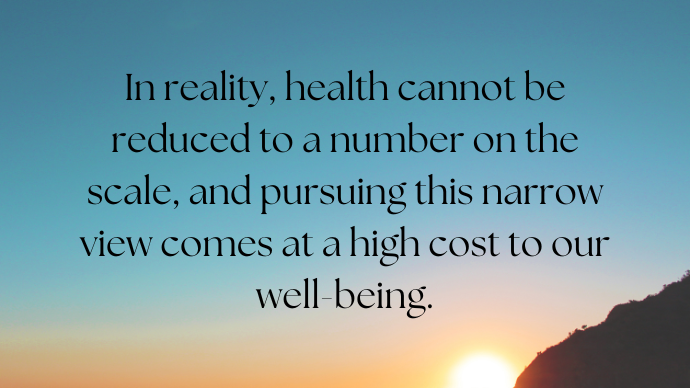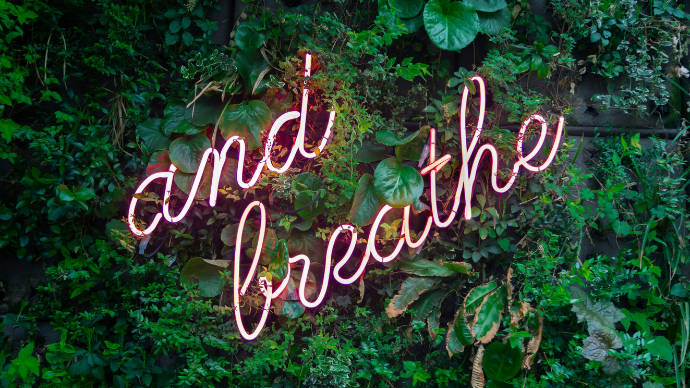Shame is “that warm feeling that washes over us, making us feel flawed, and never good enough.” — Brene Brown.
Six years ago, I introduced Reclaiming Wellness as a column focused on promoting healthy body image and redefining health. At first glance, that might seem like a simple goal, but it was not. Our relationships with our bodies are complex, often intertwined with our relationship to food, exercise, weight and self-worth. We inherit ingrained beliefs about what health, fitness and beauty “should” look like, shaping how we see ourselves and others.
Looking back, this column has been about much more than body image. At its core, it’s been about uncovering the hidden feelings of inadequacy and “not enoughness” that many of us carry. These feelings often stem from societal expectations and pressures to conform to ideals of appearance and health.
Throughout these years, I’ve called for a shift in how we view wellness, said why widening that lens enhances our wellbeing and showed how to care for ourselves more holistically. In my article “Check yourself: Fat isn’t a four-letter word,” I explored how weight bias affects us all — how negative beliefs, judgments and stereotypes about weight shape our experiences. Many of us live in fear of gaining weight or struggle with the constant pressure to lose it.
I’ve also delved into the “body hate/diet cycle” in “Enough with the war on our bodies,” where I challenged the false narrative that being thin and “ripped” as the standard for health, while “overweight” is always unhealthy.

The stories I’ve heard from Jackson locals reflect this constant pressure. A mom, ashamed of her post-baby body, avoids taking her daughter swimming because of the swimsuit she’d have to wear. I addressed this in “We can stop apologizing for our bodies now,” urging us to stop passing down body shame and encouraging us to break free from the belief that our bodies are inherently flawed.
I also wrote “Messages to girls and their bodies” to encourage parents to foster positive body image in their children by teaching them the four body truths: Bodies are diverse, bodies change, weight doesn’t equal wellness and we’re more than our bodies. Working on our own body image is the most effective way to promote healthy body image in the next generation.
The pressure to conform to American beauty standards also plays a role in our body struggles. In “Mirror mirror on the wall, what we look like isn’t all,” I suggested shifting away from appearance-based compliments and focusing on valuing people for who they are. Another piece, “See more, be more than your body,” offered practical steps for moving from body shame to resilience.
Aging presents another layer of complexity. Many women, especially postmenopausal, feel ashamed of their changing bodies. I shared in “Let’s all embrace our age: 50 is the new 50” and “Let’s end the ‘meno belly’ shaming” that aging bodies should be normalized and celebrated, rather than viewed as something to fix.
Teenagers, too, are affected. A Jackson teen shared how ashamed she felt at her doctor’s office after being told to lose weight. Her Body Mass Index wasn’t “healthy.” It was assumed that she didn’t exercise or eat healthfully when, in fact, she did. In “Dispelling myths of the BMI,” I debunked the myth that BMI is a true reflection of health. I shared the limitations of this tool, which was never intended to measure health.
I’ve also addressed the question, “What if I’m trying to lose weight for my health, not my appearance?” in articles like “Say ‘no weigh’ to the scale” and “Size and shape doesn’t define your health.” I encouraged shifting the focus from the scale to behaviors that promote holistic health instead.
Diet culture, the billion-dollar industry that profits off body shame, has been another recurring topic. In “Don’t let diet madness ruin the new year,” I introduced intuitive eating as an “anti-diet.” I’ve written extensively about the dangers of diet culture, disordered eating and eating disorders, quoting Christy Harrison, author of “Anti-Diet,” who defines diet culture as “spending your whole life thinking you’re irreparably broken just because you don’t look like this ‘ideal.’”
It’s not just women who feel inadequate about their bodies. In “Fit and ripped male ideal breeds misery,” I explored how men, too, are subjected to harmful standards, leading to body dissatisfaction, excessive exercise, eating disorders, depression and low self-esteem.
These are real stories of how body shame plays out in our community, stories of people feeling “not enough.” The belief that health, fitness, and beauty look only one way is clearly taking a toll, but shame cannot survive empathy and understanding. As Brene Brown says, “We desperately don’t want to experience shame, and we’re not willing to talk about it. Yet the only way to resolve shame is to talk about it.”
Fortunately, as a community, we’ve started these conversations, and nonprofit organizations are leading the way in redefining health. In March, Womentum presented March Onward, featuring local healthcare professionals who shared their stories and called for a shift in how we view wellness — separating worth from weight, food and bodies. In November, Girls Actively Participating! hosted a candid conversation on body image and disordered eating in adolescents. Astoria Park Conservancy hosted a special Redefining Wellness event for our community to discuss how society’s obsessive focus on body weight harms us, and how to care for ourselves more holistically. These are the focuses of Redefining Wellness, a free monthly discussion group, facilitated by Mary Ryan, therapist and dietitian at the Mental Wellness Collaborative.
Though this column is ending, so I can pursue a Master’s in Social Work and a career in mental well-being, its mission will live on through bold community leadership. Together, we can rewrite the narrative around health, fitness, beauty and our bodies. Let’s plant seeds in our community that one day grow into deeply rooted trees of self-acceptance, reminding us all that we are not flawed. We are enough.
(Published December 18, 2024 in the Jackson Hole News and Guide).


